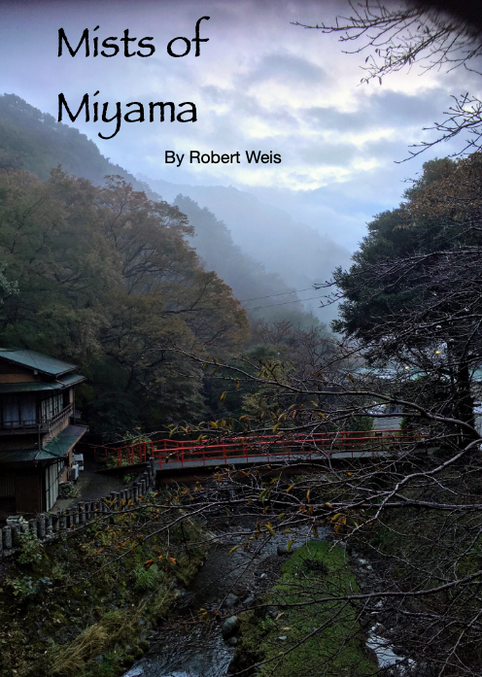
This care of the surroundings is something that I admire in Japan: the patience of the gardener who thinks not of an immediate reward, but rather who plants a seed and waits to receive the benefits.
Time has stopped at the grandma-style café and shop at Wachi station where we are to meet Yamada-san. I observe a sparrow building a nest under the roof while we drink deliciously old-fashioned filter coffee and wait for our host.
He arrives with a large smile, and we are soon being driven through Miyama Valley in Yamada-san’s old Toyota Jeep. The entrance to his home is marked by a giant, bulbous tree, which is said to be 1,000 years old. I cannot recognize the essence of the tree, but I am fascinated by its almost human presence. The enormous trunk is enveloped by a rope, in recognition of its veneration as the expression of the spirit of nature. Indeed, a Shinto shrine--Ohara-Jinja-- is standing not far away, just off the road leading to Suisen-An, the residence where Ippo-chan and I will stay for the next couple of days.
“Who has learned to listen to trees no longer desires to be a tree. He desires to be nothing but what he is. This is home. This is happiness” (Hermann Hesse).
“What is a good way to age?” I ask myself. I think of the tree and Yamada-san, a vigorous, gentle gentleman in his mid-sixties. I suspect that the answer lies here, in this valley of Miyama, far away from the hustle and bustle of the large cities.
Yamada-san bought the land and the house that he lives in with his wife many years ago, and the landscape has changed with him. He tells us that, back in time, he planted not only rice paddies but also cherry trees along the road, to be able to admire the view of Sakura in future years. This care of the surroundings is something that I admire in Japan: the patience of the gardener who thinks not of an immediate reward, but rather who plants a seed and waits to receive the benefits. Maybe this is the meaning of aging well? Enhancing things little by little, year after year.
Around lunchtime, Yamada-san asks us to come with him into the small back garden. As he made a distinct whistling sound, we wondered what would happen next. Within a few seconds, a falcon appeared from the mountain and flew toward us. Yamada-san tossed a piece of chicken into the air, and the falcon—obviously used to this ritual—snatched it up during his flight, then disappeared back into the mountains. Living in harmony with nature, the secret of a good life?
The next morning, the mountains emerge from the morning mist like steep mysterious islands out of the sea. The view was meditative, and I was curious and looking forward to exploring this place, which felt like home, embodied in a 1,000 year-old Zelkova tree.
Robert Weis works as a natural scientist at the Luxembourg Natural History Museum. Passionate about the journey of life, he is irremediably drawn back to Japan, and his ideal city, Kyoto. Excerpts of his travel writing and geopoetic wanderings can be found at his blog theroutetokyoto.com.
Use and/or duplication of any content on White Enso is strictly prohibited without express and written permission from the author and/or owner.
Photo: Linda Gould
